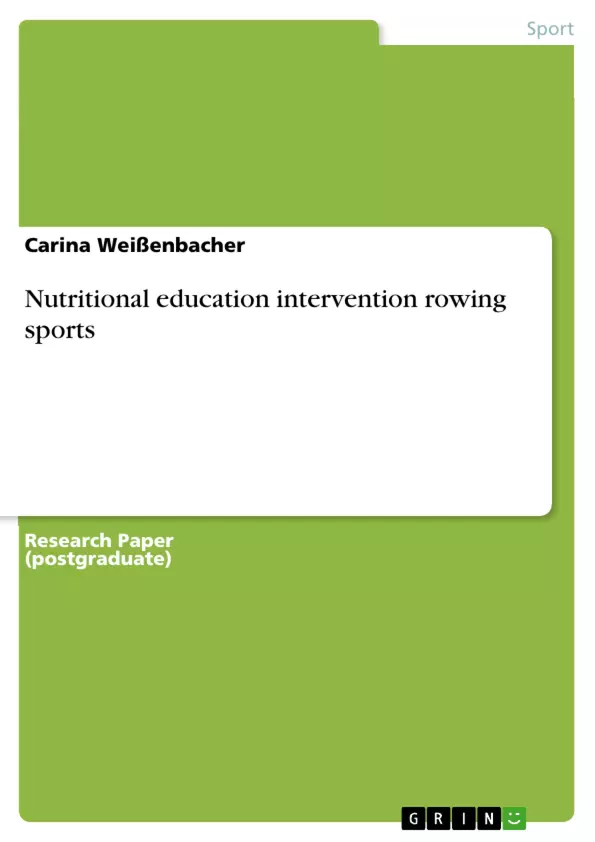The standard rowing race distance, as determined by FISA, is 2,000 meters. This distance applies to every major rowing event in the world, including the World Rowing Championships, Rowing World Cup, Olympic Summer Games, relevant qualifications or regional races. Aerobic and anaerobic calculations show that 70 to 75% of the energy necessary to row the standard 2000m distance for men is derived from aerobiosis while the remaining 25 to 30% is anaerobic. In trained rowers, the density of mitochondria is high in both ST and FT fibers.
The sport exercises all the major muscle groups. Is required a strong core balance, flexibility, cardiovascular endurance and physical strength, because the more powerful the rower is, the longer the stroke can be. In elite level rowers, there is an optimal level of muscular strength associated with success. High-performance rowers tend to be tall and muscular.
Several studies suggest that the Type I percentage is about 70% compared to 40-50% in the population at large. The more successful rowers have an even higher Type I composition. In internationally successful rowers, the percentage has been measured as high as 85%. In addition, muscle capillary density is twice as high in successful rowers as untrained.
Table of Contents
- Physiological analysis of the sport..
- Common nutritional problems which can negatively impact performance or training progression..
- Method field research
- Results fieldresearch...
- Behaviour.......
- Determinants
- Conclusion....………..\n
- References.....
- Scenario.......
- Carbohydrate handout.
- Nevotabel
- Evaluation of the product......
- Evaluation of the process.
- Reference
Objectives and Key Themes
This text explores the physiological aspects of rowing, focusing on the nutritional challenges faced by athletes in this sport. It aims to identify and analyze key nutritional issues that can negatively impact performance and training progression, such as dehydration, glycogen depletion, and muscle soreness. The text also examines the methods used for field research, including observations, surveys, food diaries, and interviews with coaches.
- Physiological demands of rowing
- Nutritional problems in rowing
- Field research methods
- Impact of nutrition on performance
- Strategies for optimizing nutrition in rowing
Chapter Summaries
- Physiological analysis of the sport: This chapter discusses the physiological demands of rowing, highlighting the importance of aerobic and anaerobic energy systems, muscle fiber types, and physical characteristics of elite rowers. It includes tables summarizing the physical characteristics and peak physiological data of elite rowers.
- Common nutritional problems which can negatively impact performance or training progression: This chapter focuses on three key nutritional problems in rowing: dehydration, glycogen depletion, and muscle soreness. It describes the effects of these problems on performance and recovery, and outlines the physiological mechanisms involved.
- Method field research: This chapter explains the field research methods used to investigate the three nutritional problems identified in the previous chapter. It details the procedures for measuring body water loss, protein intake, and carbohydrate intake, and provides examples of survey questions and observation lists.
Keywords
Rowing, performance, nutrition, dehydration, glycogen depletion, muscle soreness, field research, observation, survey, food diary, interview, coach, body water loss, protein intake, carbohydrate intake, athlete, training, recovery.
Frequently Asked Questions
What are the physiological demands of rowing?
Rowing requires a mix of aerobic (70-75%) and anaerobic (25-30%) energy systems, as well as high muscular strength, flexibility, and core balance.
Why is glycogen depletion a problem for rowers?
High-intensity training and racing quickly deplete muscle glycogen stores. Without adequate carbohydrate intake, performance drops and training progression is hindered.
How does dehydration affect rowing performance?
Even mild dehydration can lead to reduced cardiovascular efficiency, increased core temperature, and early fatigue during a 2,000-meter race.
What types of muscle fibers are dominant in elite rowers?
Elite rowers typically have a high percentage of Type I (slow-twitch) fibers, often reaching up to 70-85%, which supports the endurance requirements of the sport.
What nutritional strategies help with muscle soreness?
Adequate protein intake and timing are essential for muscle repair and recovery, helping to mitigate soreness after intense training sessions.
- Arbeit zitieren
- Carina Weißenbacher (Autor:in), 2017, Nutritional education intervention rowing sports, München, GRIN Verlag, https://www.grin.com/document/389064



